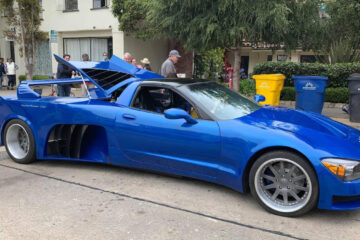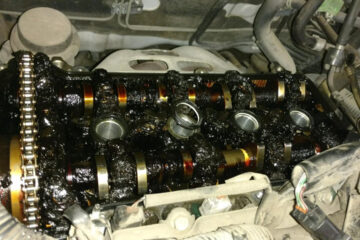9. Neglecting Timing Belt or Chain Maintenance — One Snap, Total Collapse
Timing belts and chains synchronize the crankshaft and camshaft(s), ensuring that valves open and close at the proper time. In most modern engines, especially interference engines, a snapped belt or failed chain means the pistons and valves will collide — usually resulting in bent valves, damaged pistons, or a destroyed cylinder head.
Belts usually require replacement every 90,000–150,000 km, while chains are “lifetime” components — but still need proper oil pressure and tensioners to last.
Warning signs of timing failure:
- Slapping or rattling noise from the timing cover
- Hard starting or misfiring
- Visible belt wear or oil contamination
Prevention tip:
Follow the manufacturer’s interval strictly for belt replacement. For chains, monitor oil pressure and listen for abnormal noises — especially on cold starts.
10. Hard Driving and Aggressive Acceleration — Fun Today, Worn-Out Engine Tomorrow
Flooring the gas pedal, redlining the tachometer, or launching the car hard might be exhilarating — but repeated aggressive driving puts enormous stress on engine internals. Every time you push the engine beyond its normal load range, you’re increasing thermal strain, bearing load, and piston velocity.
While performance engines are built to handle some abuse, everyday engines — especially older or poorly maintained ones — suffer quickly. Rod bearings, piston rings, valve guides, and even the crankshaft endure extra forces they weren’t designed for.
Risks of constant aggressive driving:
- Overheating and oil breakdown
- Turbocharger stress or failure
- Cracked pistons and spun bearings
Prevention tip:
Drive spiritedly occasionally, not constantly. Always let the engine warm up first, and don’t push past redline unless you’re on a track — and even then, only if the car is properly prepared.







0 Comments